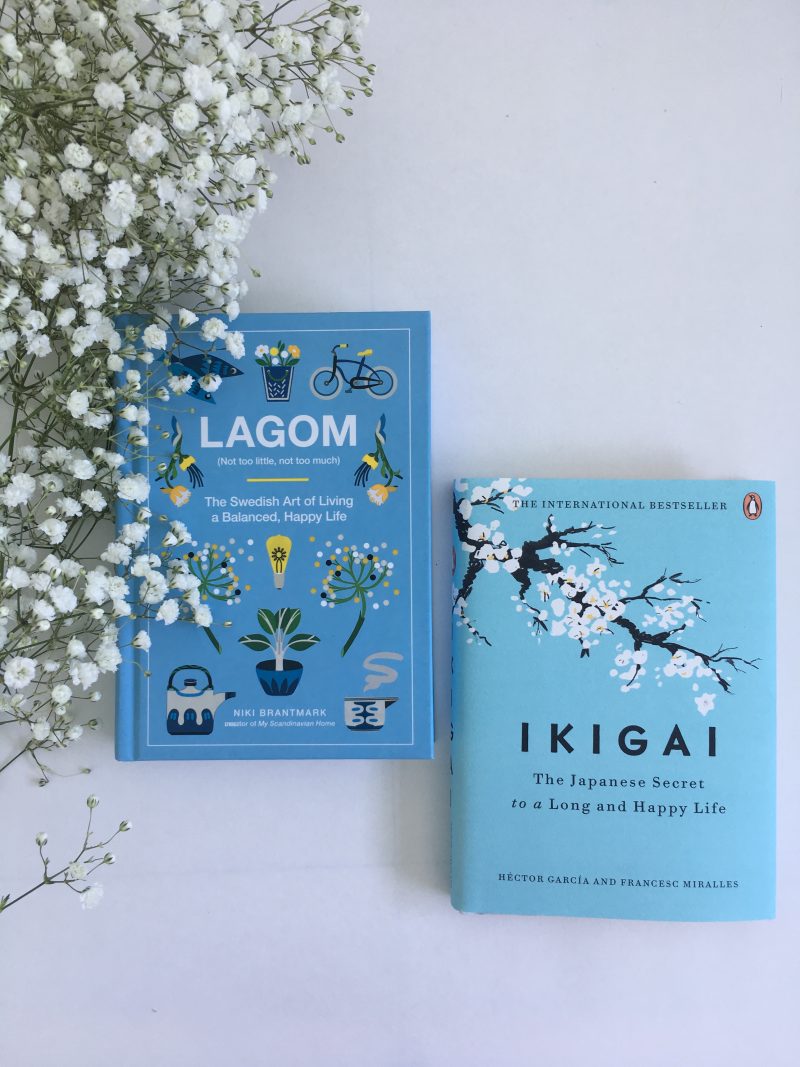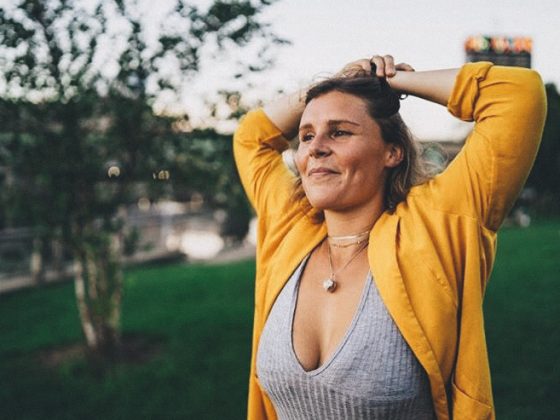Is it easy or is it hard to be happy? Social media often makes achieving happiness look easy, as something that should come naturally to us every day. But reality doesn’t seem to follow this theory. The reality in fact gets in the way of happiness every so often, just to remind us, happiness is transient, it is not here forever. It can disappear at any moment and leave us empty and sad. What to do to keep happiness alive as a constant part of our lives?
We have to feed it. Just like any other living organism which we want to keep alive. We have to pay attention to it, nurture it and take care of it. How?
Let me introduce you to my bookshelf, specifically to the part, which holds the books I like to call “happy books.” I make it a habit to look at them every morning when I come to my office before I sit down to my desk to write. Their names: Ikigai, Hygge, Lykke, and Lagom. My foreign friends that hold the truth about how to be happy. They helped me realize a lot about my life and the direction it was going. They made me pause and look inward to first find myself. If you are intrigued, keep reading, I will share little pieces of their knowledge with you.
IKIGAI
“Essentials to happiness in this life are something to do, something to love, and something to hope for.” ― Hector Garcia Puigcerver, Ikigai: The Japanese Secret to a Long and Happy Life
I know we shouldn’t have favorites when it comes to our kids, but it is allowed to have inequity when we talk about books. Ikigai is my favorite “happy book.”
Ikigai simply means “a reason for living.” According to the Japanese finding it is the key to a happy life. It sounds simple, but it can be very hard. I have always admired people who knew from when they were little, what they want to do when grown. When I was a child I didn’t know where my talents lie. I would often observe others to try to find out if their interest could make me happy. Only when I stopped looking outwards and started looking internally did my path reveal itself to me. And it led me to my Ikigai, writing. And that is precisely what you should do if you don’t feel happy where you are right now. Because we all spend most of our lives working, and we have to make sure that what we do is something that truly fulfills us, that it is our Ikigai.
HYGGE AND LYKKE
“We are social creatures, and the importance of this is clearly seen when one compares the satisfaction people feel in relationships with their overall satisfaction with life. The most important social relationships are close relationships in which you experience things together with others, and experience being understood; where you share thoughts and feelings, and both give and receive support. In one word: hygge.” ― Meik Wiking, The Little Book of Hygge: The Danish Way to Live Well
Hygge and Lykke are Danish twins. Both books were written by Meik Wiking, the CEO of the Happiness Research Institute in Copenhagen. They share the secrets of Denmark, “the world’s happiest country.” What does Hygge mean? According to Meik Wiking, it is a sense of comfort, togetherness, and well-being. “It is about being with the people we love. A feeling of home. A feeling that we are safe.” Lykke simply means Happiness. Both books explain the meaning of these two words in a more practical way. Aside from telling us that it is the candlelight, that creates the cozy, happy mood in every home, they suggest to spend quality and fun time with our friends. Ride bicycle, play board games, eat home cooked meal together and share stories with each other. Make your life simple but rich in quality.

LAGOM
“Most people equate success with a high-flying career and a million in the bank. I would have done the same before moving to Sweden. Perhaps the most liberating lesson of all has been feeling satisfied with ‘enough’. If you have the expectation that having more is equal to happiness, you’ll always be left wanting.” ― Niki Brantmark, Lagom: The Swedish Art of Living a Balanced, Happy Life
Lagom is a Swedish word that means “not too little, not too much, just the right amount.” And that approach to life seems to be the key to success and happiness, that Swedish people practice. As the quote above suggests, the moment you focus on getting more, you cannot really see what you already have and feel the gratitude and the happiness that it comes with. The moment you start appreciating the things you have and fill your heart with abundance, you may realize you have you’re Lagom already. I like to practice gratitude every day by saying the things I am grateful for every morning before I get out of bed before I grab my phone, and during meditation in the evening.
The one thing that all of these books have in common is the urge they put on togetherness. It is not a coincidence, that one of the oldest people in the world lives on the island of Okinawa. The islanders live longer, according to the Ikigai book, precisely because they have a larger sense of community. Meik Weiking agrees and adds that it is more than important to shape our societies and our lives to allow our social relationships to flourish. The most extensive and longest active research project, spanning nearly 80 years, conducted by Harvard Study of Adult Development, has proven that close relationships are what help us live longer and keep us happy throughout our lives.



